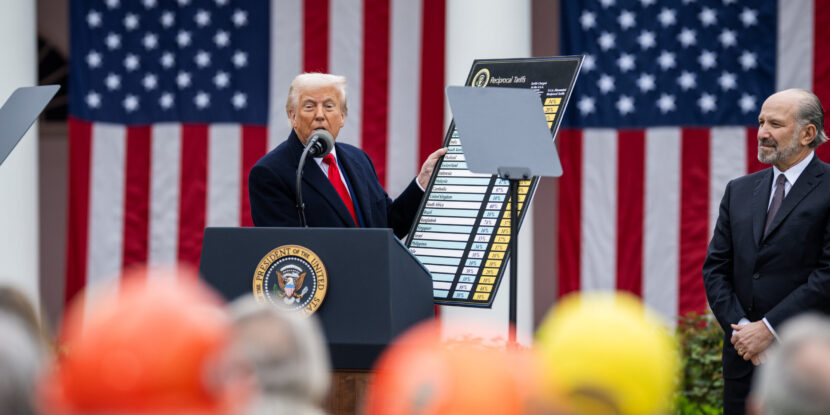PULSE POINTS:
❓What Happened: Several companies announced significant investments in American manufacturing operations due to the Trump administration’s tariff policy and efforts to boost domestic production.
👥 Who’s Involved: President Donald J. Trump, American manufacturing companies, and workers across the United States.
📍 Where & When: Investments and growth were announced by the White House on April 23.
💬 Key Quote: “Increasing our footprint in the U.S. is important.” — Regeneron CEO Leonard Schleifer
⚠️ Impact: Increased investments have led to job creation and economic growth in various regions across the country.
IN FULL:
American manufacturing has seen a surge in investment, attributed to Trump administration efforts to strengthen the sector and promote domestic economic growth. In recent days, multiple firms have announced substantial plans to enhance their manufacturing capabilities on U.S. soil, supporting job creation nationwide. This trend aligns with a concerted strategy to reduce reliance on overseas production and increase self-sufficiency.
On April 23, the White House released a statement revealing that foreign companies are investing billions of dollars in U.S.-based manufacturing. These include Swiss drug and diagnostics company Roche, which looks to invest $50 billion into manufacturing and R&D in the U.S.
Likewise, Regeneron Pharmaceuticals, Inc., a major player in biotechnology, has also stated it would be investing $3 billion. The company looks to produce pharmaceuticals in North Carolina. “Increasing our footprint in the U.S. is important,” said Regeneron Chief Executive Officer Leonard Schleifer.
The administration’s policies, which include tax incentives and reductions in regulatory burdens alongside tariffs against foreign producers, are cited as pivotal in these decisions.
President Donald J. Trump has made it clear through his tariff strategies that he is determined to bring back U.S. manufacturing jobs. NVIDIA, one of the largest tech companies, also recently announced it would be investing as much as $500 billion. The money will be used to create infrastructure to support the domestic manufacture of artificial intelligence (AI) supercomputers.




















